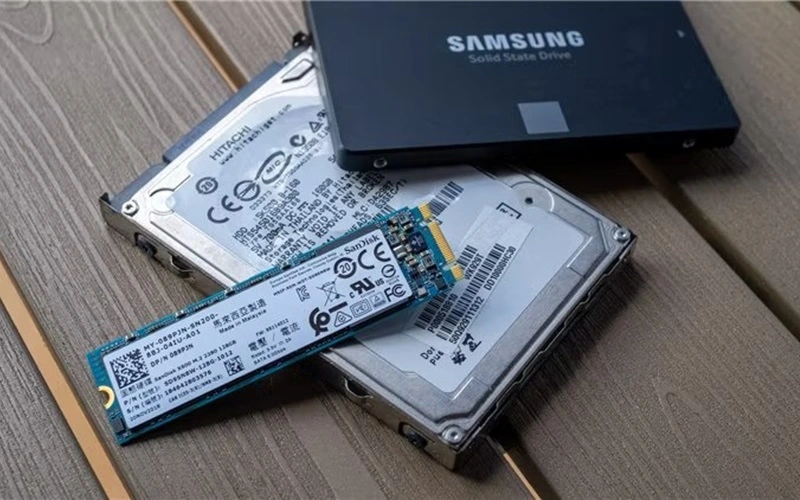When choosing between a Hard Disk Drive (HDD) and a Solid State Drive (SSD) for your computer, the decision depends on your specific needs, including performance, storage capacity, and budget. Here’s a comparison to help you decide:
HDD (Hard Disk Drive):
Pros:
- Cost-Effective: HDDs offer a lower price per gigabyte, making them a budget-friendly option for large storage capacities.
- Large Storage Capacity: HDDs can store significant amounts of data, often reaching several terabytes (TB), making them ideal for users who need to store large files like videos, photos, and games.
- Availability: HDDs are widely available and come in various sizes and capacities.
Cons:
- Slower Performance: HDDs have slower read/write speeds compared to SSDs due to their mechanical nature, which can result in longer boot times and slower file access.
- Noise and Vibration: HDDs have moving parts, which can generate noise and be susceptible to vibration or physical damage.
- Higher Power Consumption: HDDs generally consume more power, which can reduce battery life in laptops.
Best For:
- Users who need a lot of storage at a lower cost.
- Storing large media files, backups, and less frequently accessed data.
- Desktop users where noise and power consumption are less of a concern.
SSD (Solid State Drive):
Pros:
- Faster Performance: SSDs offer significantly faster read/write speeds, leading to quicker boot times, faster file access, and overall improved system responsiveness.
- Durability: With no moving parts, SSDs are more resistant to physical damage, making them more reliable for mobile devices like laptops.
- Silent Operation: SSDs operate silently since they don’t have mechanical components.
- Lower Power Consumption: SSDs consume less power, which can extend battery life in laptops.
Cons:
- Higher Cost: SSDs are more expensive per gigabyte compared to HDDs, especially for larger capacities.
- Limited Storage Capacity: While SSD capacities are growing, they still generally offer less storage space than HDDs at the same price point.
Best For:
- Users who prioritize speed and performance, such as gamers, content creators, and professionals running resource-intensive applications.
- Laptop users who need durability, efficiency, and longer battery life.
- Those who want a quieter and more responsive computing experience.
Conclusion:
- Choose an HDD if you need large amounts of storage at a lower cost, and performance is not your top priority. It’s a good option for desktops or as a secondary storage drive for files and backups.
- Choose an SSD if you value speed, reliability, and energy efficiency. It’s ideal for laptops and performance-critical tasks, even if it means compromising on storage capacity or spending a bit more.
Hybrid Option (SSHD):
If you’re looking for a compromise, a hybrid drive (SSHD) combines the large capacity of an HDD with the speed benefits of an SSD by using a small amount of flash storage as a cache. This can offer improved performance over a traditional HDD while still providing ample storage at a reasonable price.
In summary, if budget allows, opting for an SSD (or a combination of SSD for the operating system and HDD for storage) can provide the best of both worlds. If you’re on a tight budget or need a lot of storage, an HDD is still a solid choice.
